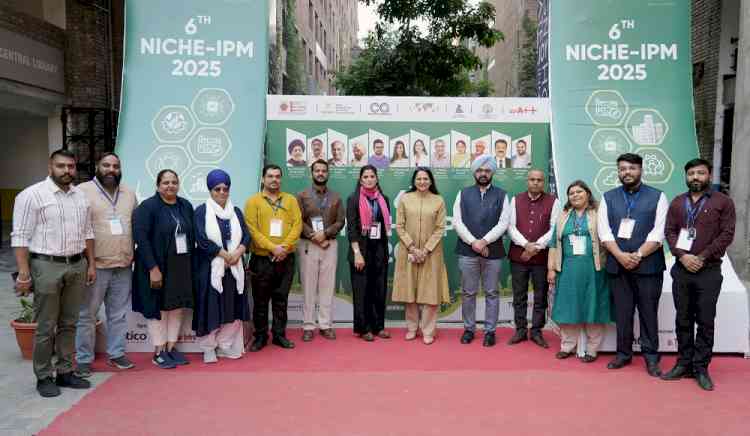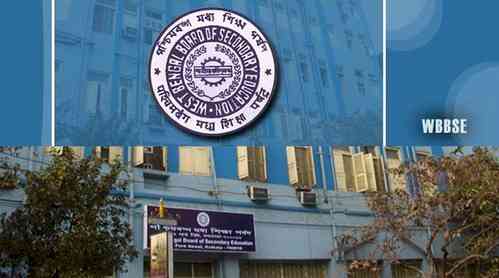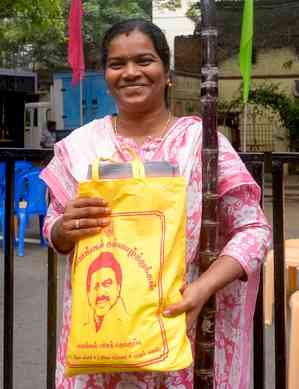Convened Global minds at 6th Neo-International Conference Championing a 'Viksit Bharat' Through Sustainable Habitat Design
The NICHE–IPM 2025 conference took “Empowering India: Towards a Sustainable and Habitable India” as its central theme

Jalandhar, November 22, 2025: In an ambitious move to architect the very future of the nation, Lovely Professional University (LPU) hosted 6th Neo-International Conference on Habitable Environments and International Professionals Meet (NICHE–IPM 2025). The Lovely School of Architecture and Design, organized the two-day grand intellectual confluence, a strategic national dialogue, positioning sustainable habitat design as the cornerstone for achieving a 'Viksit Bharat' by 2047.
The conference, themed “Empowering India: Towards a Sustainable and Habitable India,” brought together eminent architects, policymakers, and researchers, alongside global thought leaders. Firmly aligned with the national aspirations of Viksit Bharat 2047, NICHE–IPM 2025 explored transformative ideas across inclusive and healthy communities, urban–rural economic growth, AI-driven and automated built environments, governance for security and sustainability, and India’s expanding global leadership in sustainable design.
Dr. Col. Rashmi Mittal, Pro-Chancellor of LPU, and Dr. Jaspal Singh Sandhu, Vice-Chancellor of LPU, graced the inaugural ceremony. In her address, Dr. Mittal emphasised the responsibility of academic institutions in shaping responsible designers for the future, stating that “Sustainability is no longer an academic pursuit, it is a national obligation. As LPU is committed to cultivate architects who design not just for today, but for the nation.
International perspectives were brought to the fore by Prof. Rosa Cervera, Universidad de Alcalá, Spain, and Prof. Masoumeh Mirsafa from Lund University, Sweden. They shared compelling insights into biological innovations for climate-positive architecture and designing cities for more-than-human coexistence.
An eminent panel of national keynote speakers included Prof. Charanjit Singh Shah, Prof. Jit Kumar Gupta, Prof. Anurag Roy, Prof. Meenakshi Singhal, Maj. Gen. Balwinder Singh, Council of Architecture Vice President Ar. Gajanand Ram, and Er. Gautam Aswani. Their discussions tackled urgent issues such as climate governance, compact city planning, global warming potential of buildings, equitable street design, architectural education reforms, heritage conservation, and the rise of green building rating systems.
Furthermore, LPU’s commitment to experiential learning was evident in five specialized workshops that equipped participants with tomorrow's tools. From Ar. B. Venkateswara Raja’s session on AI and IoT for predictive built environments to a Hybrid Natural Building Workshop by Ar. Bharat Rolaniya and Ar. Saumya Saisree, and a critical session by the Fire and Security Association of India, the focus was on translating theory into tangible, industry-relevant skills. The event also featured research paper presentations, creative student exhibitions, and book displays authored by LPU’s emerging designers, culminating in a cultural evening and a grand valedictory ceremony.
By integrating essential practical skills, such as understanding local rating systems and engaging in hands-on workshops like clay moulding by Artist Simarjit Singh, with high-tech subjects like AI, LPU's Lovely School of Architecture and Design ensures its graduates are not just degree holders, but highly capable, innovative professionals ready to solve complex design challenges for a resilient and sustainable India. This dedication to global academic collaboration and delivering impactful, applied knowledge is what truly sets LPU’s architecture program apart, solidly establishing its reputation as a leading institution that actively nurtures the architects who will build the future of the nation.


 City Air News
City Air News 










